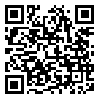Volume 27, Issue 98 (summer 2022)
__Judicial Law Views __2012__, 27(__59__): __22464 |
Back to browse issues page
Download citation:
BibTeX | RIS | EndNote | Medlars | ProCite | Reference Manager | RefWorks
Send citation to:



BibTeX | RIS | EndNote | Medlars | ProCite | Reference Manager | RefWorks
Send citation to:
baharloo qareh boltaqy J, jafarzadeh Q. Immune persons from fraud exception in letter of credit; study in America, China and Iran law. دیدگاههای حقوقی 2022; 27 (98) :45-64
URL: http://jlviews2.ujsas.ac.ir/article-1-1413-en.html
URL: http://jlviews2.ujsas.ac.ir/article-1-1413-en.html
1- Shahid Beheshti University , javad.baharloo@yahoo.com
2- Shahid Beheshti University
2- Shahid Beheshti University
Abstract: (1324 Views)
The most important exclusion for the principle of independence of letter of credit is fraud. In the case of fraud by beneficiary, the issuing bank could avoid from payment the credit to beneficiary. But, because of simplification, and security of payment, sometimes, or the necessity of financing, third parties such as nominated bank, confirmer, holder in due course and assignee of the proceeds of deferred payment is participated in this process, and try to pay or negotiate. Now, can the issuing bank, and applicant invoke to this falsification against these persons, and refrain from paying credit? Chamber of Commerce and the United Nations Commission for international trade law have no provision in this matter. But protecting of innocent third parties requires that the risk of fraud should be suffered parties to avoid third party's responsibility. So this paper tries to study UCC regulations (parts 5-109), Article 10 of the supreme people's court of China regulations, the concept of Article 12 of the UCP600 to study situation, and condition of protected persons and possibility of protecting them in Iranian legal system regarding to current rules.
Type of Study: Applicable Research |
Subject:
Pivate Law
Received: 2018/09/23 | Revised: 2023/01/22 | Accepted: 2019/09/23 | Published: 2022/10/10 | ePublished: 2022/10/10
Received: 2018/09/23 | Revised: 2023/01/22 | Accepted: 2019/09/23 | Published: 2022/10/10 | ePublished: 2022/10/10
Send email to the article author
| Rights and permissions | |
 |
This work is licensed under a Creative Commons Attribution-NonCommercial 4.0 International License. |

